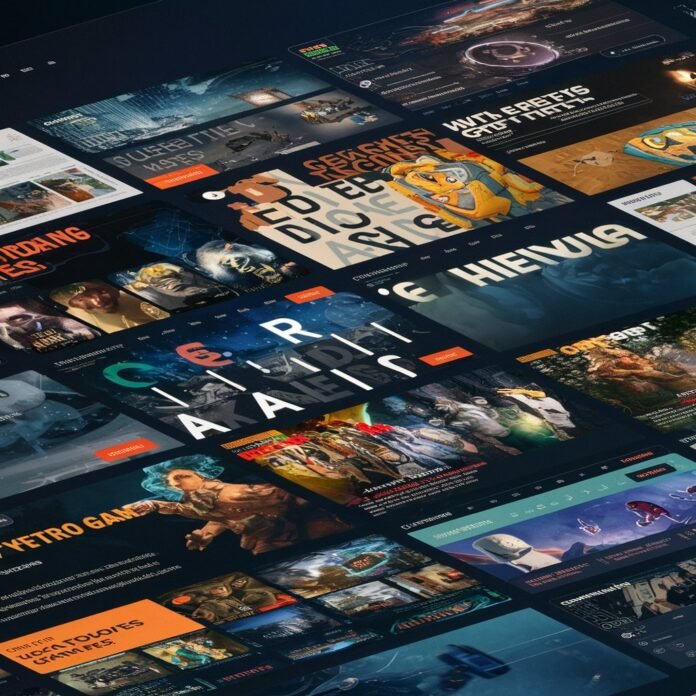Introduction
Welcome to TheGameArchives Updates, your definitive source for the newest developments in game preservation, restoration, and historical discoveries. As the digital landscape evolves, so too does our mission to safeguard gaming’s legacy—whether it’s uncovering lost prototypes, celebrating newly restored classics, or tracking the latest efforts to archive at-risk titles. In this ever-changing space, staying informed is crucial. Here, we bring you the most significant updates, from groundbreaking emulation advancements to community-driven recovery projects and official re-releases that breathe new life into forgotten gems. Join us as we bridge the past and present, ensuring no game is left behind in the march of progress.
Headings & Explanations
1. Breaking News: Major Game Restorations & Rediscoveries
This section highlights the most exciting recent recoveries in game preservation. Did a long-lost Sonic prototype surface in a developer’s attic? Was a canceled Silent Hill sequel finally leaked and preserved? We’ll cover verified discoveries, the stories behind them, and how they reshape our understanding of gaming history. Expect deep dives into verification processes—how archivists confirm authenticity—and why these findings matter beyond mere nostalgia.
2. Emulation Milestones: The Tech Pushing Preservation Forward
Emulation is the backbone of game archiving, and breakthroughs here can mean the difference between a playable classic and a forgotten relic. Here, we’ll report on cutting-edge developments like the first near-perfect PS3 emulation, AI-powered upscaling tools for retro textures, or newly cracked DRM that finally makes certain PC games preservable. Technical but accessible, this section is for anyone who cares about keeping old games running on modern hardware.
3. Legal Battles & Policy Shifts: The Changing Landscape of Game Archiving
Laws and corporate policies directly impact what can be preserved. This update covers recent lawsuits (e.g., Nintendo vs. emulation sites), surprising corporate collaborations (like Microsoft’s open-source releases of old OS code), and new precedents that help or hinder preservation. We’ll analyze what these changes mean for fan projects, museums, and the future of accessing vintage games legally.
4. Community Spotlight: Fan Projects Saving Gaming History
From modders rebuilding Half-Life assets in 4K to volunteers cataloging every Japan-exclusive Famicom manual, grassroots efforts are the lifeblood of preservation. Each update will showcase remarkable community work—think a GoldenEye 007 online multiplayer mod or a team reverse-engineering a dead MMO’s server code. These stories celebrate the passion keeping games alive against all odds.
5. Official Re-Releases: When Publishers Finally Get It Right
Not all preservation relies on hackers—sometimes, companies do it themselves. We’ll review newly announced or launched remasters/ports (like Perfect Dark on Switch or System Shock Remake), grading them on historical accuracy, bonus content, and respect for the source material. Did they include the original bugs? Scanned artwork? Developer commentary? This section holds corporations accountable while applauding genuine effort.
6. At-Risk Alerts: Games That Need Saving NOW
A call to action. This recurring feature identifies games on the verge of disappearing—maybe an online-only title shutting its servers or a delisted digital game with no physical release. We’ll provide context on why they’re culturally significant and concrete ways readers can help (archiving assets, petitioning publishers, or joining preservation raids to document content). Urgency is key here.
7. Tools & Resources: New Ways to Explore Gaming’s Past
Rounding out each update, we’ll share practical tools for aspiring archivists: newly launched databases, user-friendly emulation kits, or digitized collections of game design documents. Think “Internet Archive adds 10,000 retro magazine scans” or “A.I. tool automatically extracts sprites from Genesis ROMs.” These resources empower readers to participate in preservation themselves.
Conclusion
TheGameArchives Updates exists because game history isn’t static—it’s a living, fragile thing that needs constant vigilance. Every breakthrough, legal ruling, or fan effort inches us closer to a future where no game is truly lost. Whether you’re a developer, historian, or just someone who cares about the medium, these updates are your toolkit for understanding—and joining—the fight to keep gaming’s legacy intact. The next great rediscovery could happen tomorrow. Stay tuned, stay informed, and consider this your invitation to help write the next chapter in preservation.



